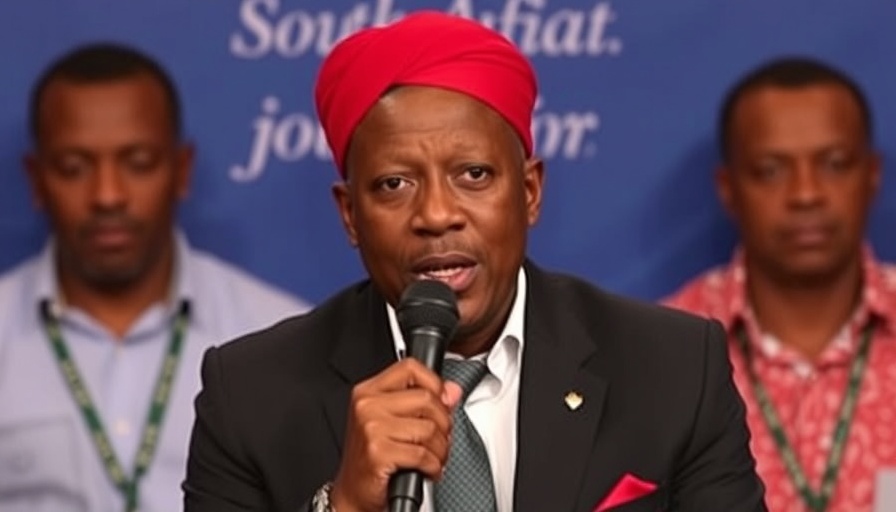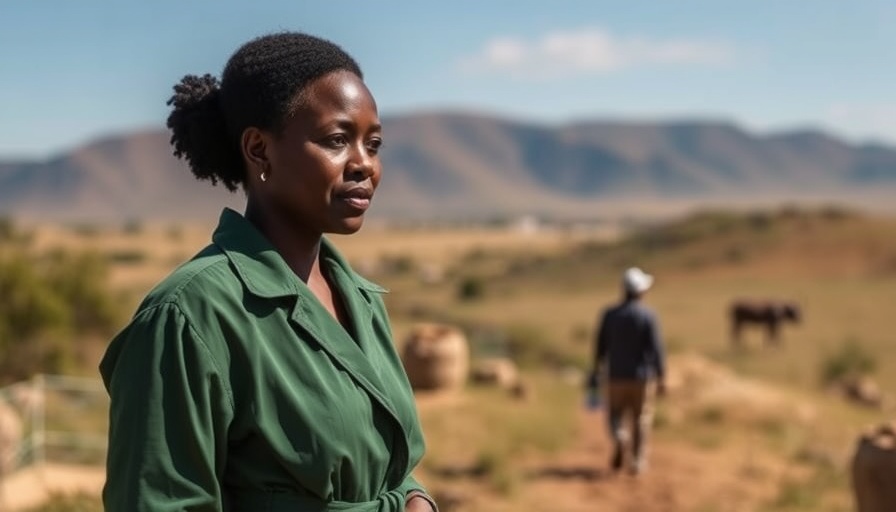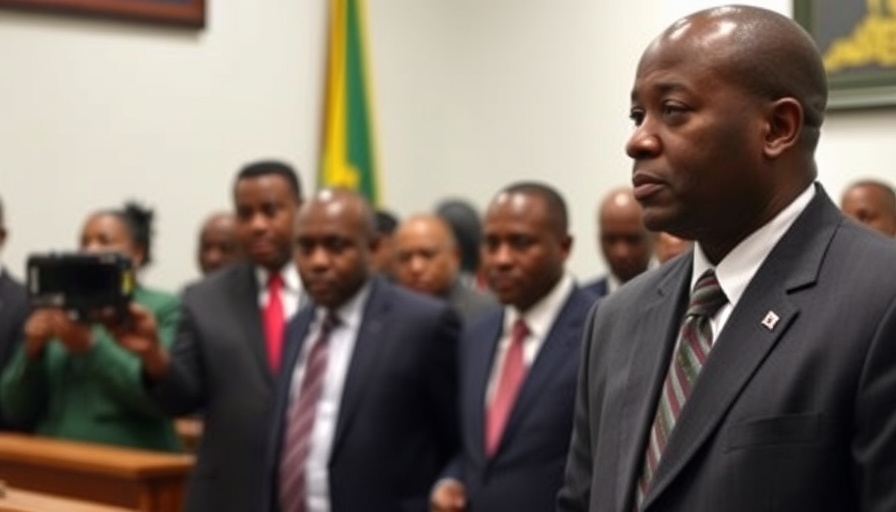
Malema's Shift: A Reflection of Growing Immigration Concerns
In recent weeks, Julius Malema, the leader of the Economic Freedom Fighters (EFF) in South Africa, has noticeably shifted his narrative regarding immigrants, reflecting heightened immigration tensions within the country. Traditionally, Malema has been a strong advocate of supporting immigrants, framing his arguments within a broader scope of solidarity and economic justice. However, as calls for prioritizing job opportunities for South African citizens proliferate, his rhetoric has transformed. This pivot aligns with a growing sentiment among many South Africans who feel economically marginalized, especially in a post-pandemic landscape where job security has diminished.
Understanding the Economic Context Behind Malema's Shift
The shift in Malema's tone can partly be attributed to the dire economic conditions gripping South Africa. In a nation where unemployment rates soar above 30%, frustrations are boiling over. Citizens are demanding that political leaders address job security and local economic demands before extending support to immigrants. For investors and policymakers, this situation fosters a volatile landscape as they must navigate the social dynamics while making strategic decisions.
Future Implications for South Africa's Immigration Policies
This change in Malema’s stance raises significant questions about the future of immigration policies in South Africa. As the country grapples with economic challenges, there is a palpable tension between the need for a skilled labor force and the rising resentment towards immigrant populations seen as competition for scarce jobs. Stakeholders—ranging from business leaders to government officials—must consider these sentiments when shaping foreign investment strategies and labor market policies, particularly in relation to trade dynamics involving major partners like the EU and China.
Conclusion: Navigating the Emerging Economic Landscape
Malema's evolving rhetoric serves as a powerful indicator of the current socio-economic landscape in South Africa, highlighting the urgent need for thoughtful discussions among investors, policymakers, and academics. Understanding these trends is crucial as we look ahead at the complex interplay of immigration, economic growth, and governance. As the country charts its course through these challenges, it will need to create strategies that balance local priorities with the economic benefits of a globalized labor market.
 Add Row
Add Row  Add
Add 


Write A Comment